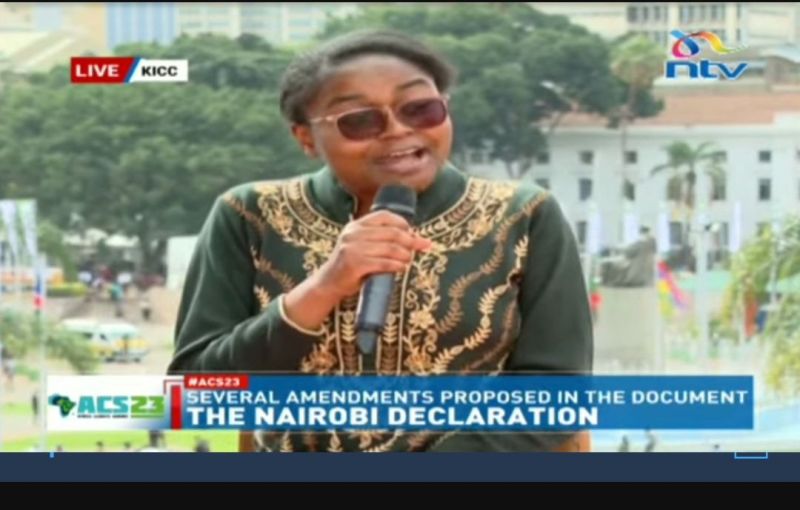Climate Talk Without Power Shifts Is Just Talk
Leah shared her preliminary thoughts on the draft Nairobi Declaration following the recently concluded African Climate Summit and raised a question that many are still asking: was the declaration enough to consolidate African voices ahead of COP28? Her answer was direct. No.
While the summit brought leaders together and gave the impression of a unified front, the content of the declaration skirted around the hard questions that need urgent and honest answers. It avoided naming the political and economic structures that continue to shape Africa’s weak bargaining power in global climate negotiations. It left out any serious commitment to shift decision-making away from elite-driven platforms and into spaces where people most affected by the crisis, women in arid and semi-arid lands, persons with disabilities, pastoralist communities, and informal settlement dwellers, can shape the outcomes that affect their lives.
The climate conversation cannot continue to be led solely by diplomats and investors. At the same time, those bearing the brunt of the crisis are reduced to statistics and footnotes in strategy documents. Leah pointed to the silence around adaptation for vulnerable groups as one of the clearest examples of how declarations like these may sound bold but are often hollow when examined against lived experience.
The Nairobi Declaration was a missed opportunity to redefine Africa’s climate position from the ground up, rather than just from the negotiation table down. It failed to speak in plain terms about the debt crisis, land justice, and the extractive models of energy development that are widening inequality while branding themselves as part of the solution.

